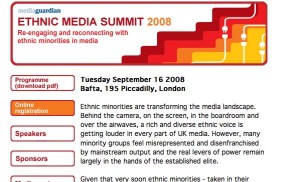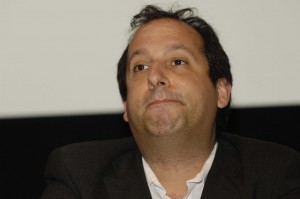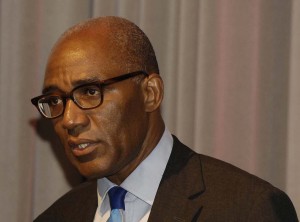John Mair, television producer and associate senior lecturer in journalism at Coventry University, shares his thoughts on Charles Wheeler, the legendary BBC journalist who died in July 2008. A memorial service was held in London yesterday.
Yesterday the great and the good of British broadcasting and journalism gathered at Westminster Abbey to honour Sir Charles Wheeler ‘the reporters’ reporter’ who died, aged 85, last year.
Wheeler devoted 60 plus years to great journalism; we all have our personal and professional memories of him. Mine date back to 2004, when I was asked to produce the Media Society dinner at the Savoy Hotel to give him its award and honour him. How do you salute a God?
I’d grown up with his work from America and elsewhere, been a producer in the BBC where he was treated with huge respect, and seen and heard his work.
I can especially remember a ‘so-so’ story on Newsnight in the 1980s about cops beating up a black man in Notting Hill, which was everyday stuff then, unfortunately. It was transformed to a different plane by Wheeler reporting on it: all of a sudden it had ‘bottom’. Charles sprinkled journalistic experience and gold dust on all he touched. That ‘so-so’ became a significant story. Charles Wheeler was like that.
Back to the Savoy Dinner: Charles was modesty itself and happy to go along with whoever came along. Everybody but everybody I approached to speak readily agreed to do so: Helen Boaden, then controller of BBC Radio 4, said no problem; Steve Anderson, then controller for news and current affairs at ITV and a former Wheeler producer at Newsnight, was gagging to be on the cast list; so too the great Peter Taylor, who said he would be ‘honoured’ to be part of such an event. Charles and his work had that sort of influence with even the very best of our trade.
But the icing on the Savoy cake proved to be one Boris Johnson, then a barely known Tory MP, Spectator columnist and part-time clown. Boris is also Wheeler’s son-in-law, and his speech on the night was a tour de force. Scribbled on the back of a Savoy napkin, it had scores of hardened hacks in stitches.
Wheeler was much more measured and contrite when it was his turn: apologising to his many producers for giving them a hard time (the sign of a good reporter – one who in involved enough to get angry); radiating modesty and sheer professionalism at one and the same time. Charles Wheeler was like that – he cared about every single word and every single picture to the bitter end of the film that he was working on – and his life.
Never mind Westminster Abbey, Sir Charles Wheeler’s (Charlie Wheeler to all) work on tape and on screen is his epitaph. That will be with us all for a long, long time to come. Adieu ‘Reporters’ Reporter’. You probably have your notebook out, finding the great stories and telling them.


